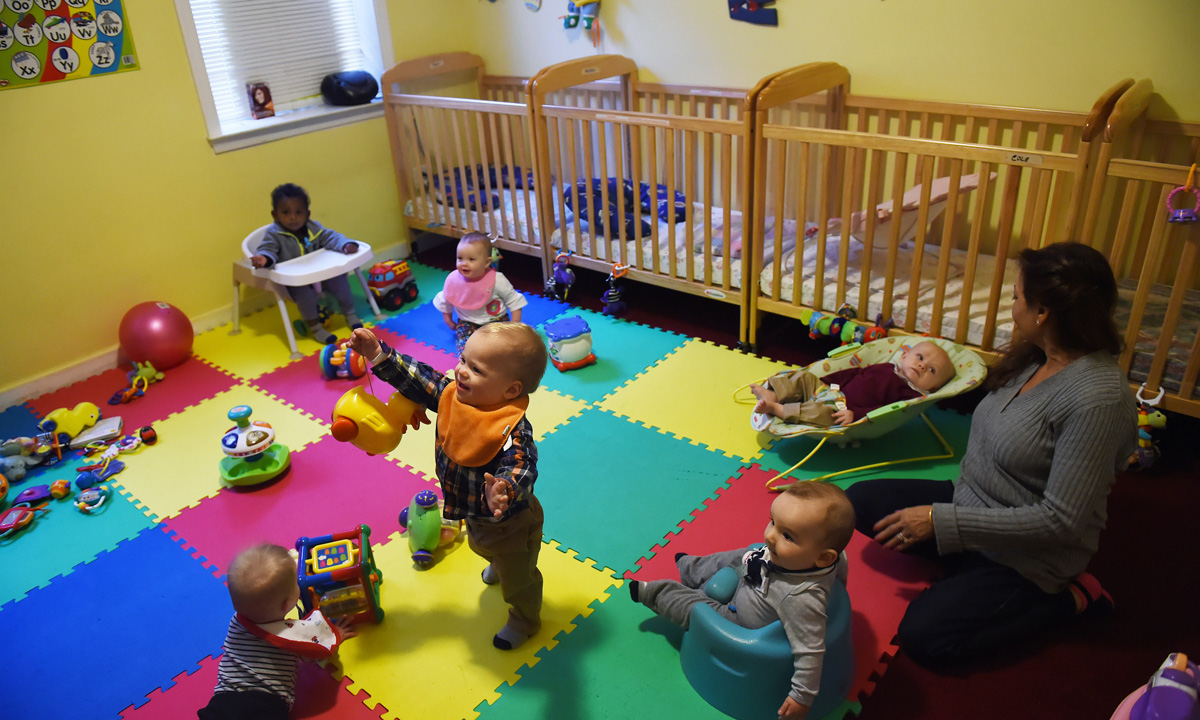This story was originally published at The Nevada Current
Deetra Stewart provided home-based child care for more than two decades before her homeowners association decided they had a problem with it.
She recalled being “shocked and horrified” by what felt like an arbitrary decision: “My family lost income and the families I serve lost their childcare provider. … (The HOA) had the power to shut down my fully licensed business, so they did.”
Stewart, whose home-based childcare business was insured and licensed by the state, worked with the HOA for several months to address their concerns about traffic, unknown visitors, and legal liability. She got them to reverse the decision and reopened. Now, she is urging state lawmakers to help ensure other home-based childcare providers don’t run into similar roadblocks.
Assembly Bill 185, sponsored by Democratic Assemblymember Natha Anderson, would bar most homeowners associations in Nevada from prohibiting licensed home-based childcare operations within their communities. HOAs for age-restricted communities would still be allowed to prohibit them, as would rental agreements signed by tenants.
Anderson and Stewart presented the bill to the Assembly Committee on Government Affairs on Monday.
Republican Assemblymember Danielle Gallant, who joked that as a property manager she “can’t say that I love HOAs and might even go on the record and say I hate them,” drew a parallel to existing state law that stops HOAs from prohibiting rooftop solar panels.
HOAs, she said, are designed to protect property values, “not to micromanage your everyday personal life.”
“This is not something that will be affecting your property values,” she added.
But other committee members expressed reservations.
Republican Assemblymember Heidi Kasama, who works in real estate, said some people seek out HOAs because they don’t want any businesses running out of their neighborhoods. She said she worries the bill would change that dynamic.
“I think other residents should have the opportunity to know if they’re moving into a community where businesses are allowed before they move in and before they purchase or rent there,” she said.
Stewart said she loves her HOA. She chalked up her association’s sudden pushback to her childcare operation as people being misinformed about the requirements placed on home-based care.
“The HOAs know nothing about how deep that goes,” she said, “from our licensing, from the health department, from the fire department.”
AB 185 would also change state licensure requirements to allow home-based facilities without dedicated outdoor space by allowing them to be licensed if they are within 1 mile of a public park or accessible outdoor space. Outdoor space requirements set by the state have been a barrier to home-based providers in condos and townhomes, said Denise Tanata, a consultant with The Children’s Cabinet.
Indoor square footage requirements for home-based childcare facilities would remain the same. Tanata said that because of that providers operating out of multi-family dwellings would most likely be restricted to six or fewer children.
In Nevada, people providing childcare for four or fewer children in a home setting are not required to be licensed. People providing home-based care for between six and 12 children are required to be licensed by the state, either as ‘family child care’ or ‘group child care’ providers, depending on how many kids are being watched.
Counties and cities can impose additional requirements, and Anderson emphasized that the bill is not intended to take away those powers.
Clark County and the cities of Reno, Las Vegas and Henderson are currently opposed to the bill. Their respective lobbyists said they are working with Anderson on their concerns, which appear to center on technical definitions and language included within the bill. They also acknowledged the need for more childcare options throughout the state.
Supporters of AB 185, including the Progressive Leadership Alliance of Nevada and the Children’s Advocacy Alliance, characterized the bill as pro-family, saying it supports parents who want their young children cared for in a home setting rather than a larger childcare center.
They also described the bill as pro-business for removing red tape and barriers for people, particularly women, who want to provide home-based childcare.
“Before women were really in the workforce, what were we doing?” asked Stewart. “We were taking care of children. We are the foundation of childcare. Childcare went out into the community when the community started wanting to start businesses and they realized that money could be made. But family child care providers take care of children because it’s what we do. We are the foundation. We are the pillars of taking care of children.”
‘A very large elephant’
Anderson described the bill as “a very, very small bite of a very large elephant,” acknowledging that child care issues are complex and require multiple fixes.
Nevada in recent years has attempted to boost the childcare industry, even using American Rescue Plan Act money to support the opening of new centers. But the number of home-based providers has significantly decreased, Anderson said.
Every county in Nevada is considered an early childcare desert, with an estimated 74% of children 5 or younger lacking access to licensed child care, according to a 2023 report from the Governor’s Workforce Development Board.
Nevada is one of the 38 states in the United States where childcare is more expensive than in-state college tuition, according to the Economic Policy Institute. The average annual cost of infant care in Nevada is $15,950 and the cost of care for a 4-year-old is $13,268.
Home-based childcare is typically cheaper than center-based care, though that is only one of the reasons families choose them. Some are drawn to the smaller setting. Others find they are able to be more flexible with hours at a home setting.
“This is just one thing we can do,” said Anderson.
Nevada Current is part of States Newsroom, a nonprofit news network supported by grants and a coalition of donors as a 501c(3) public charity. Nevada Current maintains editorial independence. Contact Editor Hugh Jackson for questions: info@nevadacurrent.com.




